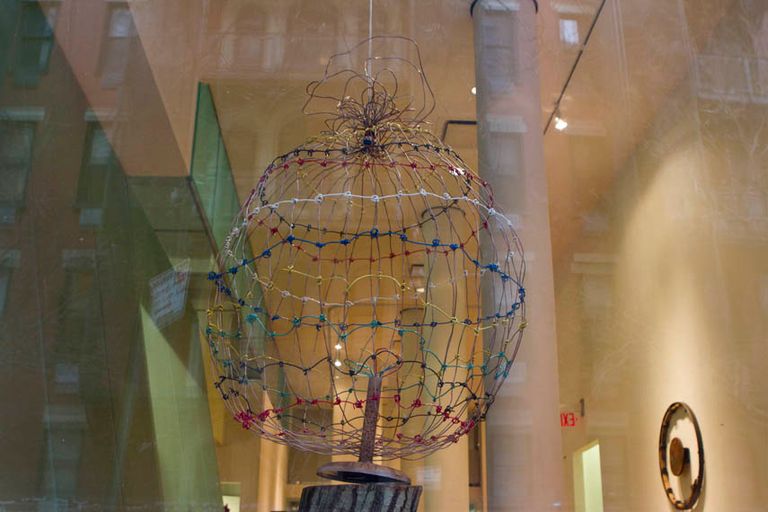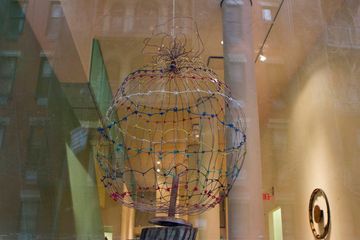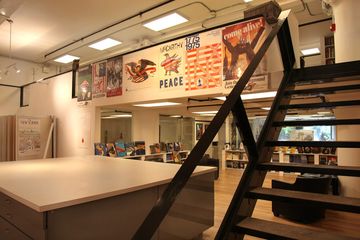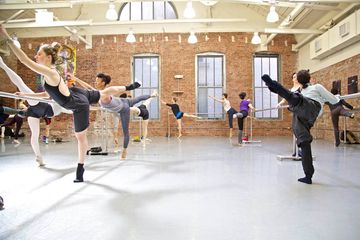From Toulouse-Lautrec to Milton Glaser, and from political propaganda to PBS advertisements, Rennert’s Gallery has more vintage and contemporary posters than I ever thought possible. The small auction house is also home to a vast reference library of photo archives and poster-related books, which is free and open to the public. When I stopped by the gallery on a warm summer day, Terry Shargel, who has been with Rennert’s for thirty years, offered to take me on a tour. I could not take my eyes off the Lautrec posters, many of which sell for more than $50, 000. “MoMA put on a Lautrec exhibit a few years ago, ” Terry told me, “and even they admitted that our selection was better. ” As we walked around, Terry gave me a helpful history lesson, pointing out vintage pieces by Cheret, Cappiello, and Mucha, a few of the pioneers of poster art. Works by these designers often cost thousands of dollars, whereas the contemporary pieces, including work by Milton Glaser, usually only sell for a couple hundred. Nina, a Manhattan Sideways writer who was with me, was especially excited to see a poster that had appeared in Roger Sterling’s office in Mad Men, as well as one that was featured in Orange is the New Black. According to Terry, the gallery never sells reproductions: all of their posters are original, from the first printing. Most of them, she added, were never even hung up; many were sold from a printer’s overstock once people started collecting. Rennert’s mainly sells works from the 19th and 20th centuries, Terry told me, and though they have posters from all over Europe and the Americas, the majority of their items are French. In fact, she informed me the president and founder of the gallery, Jack Rennert, travels to Paris nine times in a year. When I asked Terry what has changed in the poster market since Rennert’s opened thirty-five years ago, she sighed. “Our audience is getting old, ” she told me. “Young people seem to prefer photos, even though posters are a great and inexpensive way of decorating. ” But in spite of its aging customer base, the gallery is still going strong. Rennert’s holds three or four auctions each year, and for a full two weeks before each auction, customers can stop by to see all 500 posters for sale. After the tour, I spent another half hour wandering the gallery, admiring posters for some of my favorite bands from the sixties alongside Art Nouveau masterpieces. I could not wait to come back to Rennert’s with my husband, to page through design books written by Jack Rennert himself and browse through the gallery’s unrivaled collection of posters from around the world.








